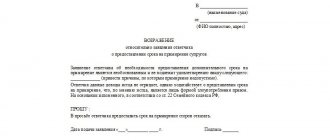When does the transition take place?
The fee for handling solid waste is included in the payment for utilities, and not in the fee for the maintenance of residential premises (Part 4 of Article 154 of the Housing Code of the Russian Federation). The obligation to pay for the utility service for the management of MSW occurs if there is an agreement concluded between the executive authority of the relevant constituent entity of the Russian Federation and the regional operator and a unified tariff for the service for the management of MSW approved at the regional level, but no later than 01/01/2019. This is the requirement of Part 8 of Art. 23 of the Federal Law of December 29, 2014 No. 458-FZ.
For some regions, the period for transition to a new MSW management system has been extended by Federal Law No. 483-FZ dated December 25, 2018. Thus, the federal cities of Moscow, St. Petersburg and Sevastopol have the right to delay the transition until 01/01/2022. Until 01/01/2020, subjects of the Russian Federation in one or more areas of activity of a regional operator in which such an operator does not exist may postpone the transition. In these regions, fees for utility services for the management of solid waste are charged as part of the fee for maintaining residential premises.
When the fee for handling MSW is initially included in the payment for utility services, the cost of services for the collection, removal, disposal (disposal) of waste is excluded from the payment for the maintenance of residential premises starting from the month in which the regional operator begins to provide services for handling MSW.
For such a change in the amount of payment for the maintenance of residential premises, there is no need to hold a general meeting of owners of premises in the apartment building. However, it is important that management companies, homeowners' associations, residential complexes, and other specialized consumer cooperatives are required to notify the owners of premises in the building about a change in the amount of payment for the maintenance of residential premises no later than 10 days from the date of the start of providing municipal services for the management of solid waste. In addition, at the request of the owner, the management organization (HOA) is obliged to submit documents confirming this fact, including documents justifying the calculation of the fee (Part 8.1, Article 23 of Federal Law No. 458-FZ). Conclusion
The transition to a new MSW management system assumes that MSW management will be carried out under agreements with regional operators. In the constituent entities of the Russian Federation where such a transition has been made, persons managing apartment buildings are required to exclude from the amount of payment for the maintenance of residential premises the cost of services for the collection, removal, disposal (disposal) of waste without a decision of the general meeting of owners, starting from the month in which the service begins to be provided regional operator.
Contradictions in the law: what applies to MSW
The list of municipal waste does not include garbage generated in the local area. The Federal Classifier of Waste Catalog contains a list approved by Rosprirodnadzor. It is regulated by Order No. 242 and includes:
- street trash;
- vegetable waste generated during the care of green spaces;
- garbage and estimates from cleaning public amenities, squares, parks, and recreation areas.
Law No. 89-FZ makes no mention of garbage generated in the local area. In this regard, a contradiction arises, and regional operators refuse to remove street garbage and waste. The Supreme Court and the Antimonopoly Service clearly classify such garbage as municipal solid waste. Removal and disposal of household waste is the responsibility of regional operators.
Reducing the amount of payment for the maintenance of residential premises is the responsibility of the manager
Current legislation obliges the person involved in managing the house to change the amount of payment for the maintenance of residential premises (unilaterally, without a decision of the general meeting of owners) in the billing month in which the regional operator begins to provide utility services for the management of solid waste. The Ministry of Construction in Letter No. 8146ME/06 dated March 11, 2019 emphasized that persons managing apartment buildings are obliged to strictly comply with the provisions of Part 8.1 of Art. 23 of Federal Law No. 458-FZ.
Example
A regional MSW management operator has been providing the corresponding service since 01/01/2019.In this case, the amount of the fee for the maintenance of residential premises had to be reduced by excluding from its composition the cost of the service for handling MSW from 01/01/2019, which should have been reflected in the payment documents for January 2021 (the fee for the utility service for handling MSW is reflected on a separate line).
If the payment document indicates the fee for handling MSW as a separate line without excluding the corresponding payment from the fee for the maintenance of residential premises, the management organization will allow double charging for the same service (example - Resolution of the AS SZZ dated 06/11/2019 No. F07-3995 /2019 in case No. A44-7639/2018).
Recalculation of fees
If the tenant is temporarily absent from the residential premises (more than 5 days), payment is recalculated :
Section VIII of the Rules provides an algorithm for recalculating the amount of payment for the period of temporary absence of the service user, namely:
Terms and periods of recalculation:
Importance of the documents provided:
Information about the application for recalculation (clause 92 of the Rules) and supporting documents (clause 93):
Appendix to the application: materials proving the user’s temporary absence.
List of possible documents attached to the application:
Form and type of documents (clause 94 of the Rules):
How does the consumer know whether the recalculation has been completed?:
How is MSW management calculated in 2021?
Nowadays, many homeowners are perplexed about the increased payment for garbage .
The answer is simple: the increased list of works within the framework of “solid waste management” requires increased funding. Previously, the responsibility of companies included only the neutralization and disposal of solid waste, and the receipts of the owners of residential premises included either “Removal of solid waste.” Smaller volume of work and paid at a lower rate.
Waste processing and disposal were carried out earlier, but by different organizations, and their services were paid for from budgetary funds .
It turns out that the costs of the full cycle of “solid waste management” are now borne by home and office owners.
The regional operator sets the tariff for its service (amount in rubles per cubic meter of garbage, denoted by “T”), and the calculation of the amount of the fee is determined depending on the number of persons living in the residential premises (previously the calculation principle was based on the number of square meters in the apartment (private house )).
The tariff for MSW management differs in different regions of the Russian Federation. The exact amount of the tariff rate can be found on the official website of the administration of your region.
The service fee is calculated according to the following algorithm:
- standard is established (how many cubic meters of waste does 1 person generate per year).
Let's denote it "N". Important: the consumption standard in apartment buildings, private houses and for legal entities (or individual entrepreneurs) is set differently; - The volume of services provided in the current period is calculated (denoted by “O”): the number of cubic meters. meters of garbage per month per 1 person (N / 12 months) is multiplied by the number (X) of persons living in the apartment (house). Therefore, O = (N / 12) x X;
- the final stage of calculating the amount of the fee (we denote it as “P”): the tariff rate “T” is multiplied by the volume of services provided. P = T x O.
If we bring all the stages of calculations together, we get the following formula: P = T x (N / 12) x X.
MSW disposal
The problem of waste disposal is an eternal one for Russia. Measures taken at the level of the Russian leadership must be supported financially. It is necessary to invest more in the development of a waste recycling system so that the economic effect is felt by the entire population of the country.
Burial
Currently, the least expensive option for recycling waste is storage at a landfill (landfill). The landfill area is approximately 50 – 250 hectares. It must be far from residential buildings, a protective zone is needed around it, the soil must be clay to waterproof the landfill, a fence of about 2 meters is required. Landfills are usually equipped with outbuildings, engineering structures, access roads, waste processing and sorting lines.
Burning
In order not to occupy huge areas for waste storage, the incineration method is used. This is the most sanitary and hygienic method of waste disposal, which exposes waste to high-temperature fuel combustion products. Combustion occurs in furnaces that include a grate. The process consists of 5 stages: drying, gasification, ignition, combustion and afterburning. The stages usually occur sequentially, but can occur simultaneously.
Unfortunately, the combustion method has many disadvantages, namely:
- Waste incineration plants are very expensive to build and maintain.
- Construction of the plant takes a long time, about 5 years.
- Expensive equipment and technologies for burning and destroying waste decay products.
There is an absolutely opposite point of view, whose supporters claim that technologies are currently in use that make it possible to neutralize all harmful emissions into the atmosphere. An eloquent example of this point of view is the building built in 1989. Spitellau plant. This plant supplies about 60,000 apartments with heat; nearby there is an elite residential community with a kindergarten and office buildings. According to experts, the level of air pollution is zero.
Composting
Landfilling is also called composting. Its essence is to bury biological residues (products) in the ground. In the soil, thanks to bacteria, air and wastewater, waste decomposes (rotting) and compost forms. Compost is widely used as fertilizer.
Recycling
In Russia, the authorities began to actively promote business in the collection, removal and recycling of various wastes.
According to entrepreneurs, it is profitable to recycle:
- plastic bottles and any plastic containers;
- plastic bags;
- paper, cardboard;
- equipment that has failed (due to the presence of copper, aluminum, silver, gold);
- cars that have been in an accident;
- food waste (for composting).
The most profitable recycling business is plastic recycling. Cups and bottles are easy to make but have a long decomposition time, so investment from environmental organizations is possible. Raw materials are taken not only from landfills, but also negotiate with stores to install bins for collecting plastic. Recycled raw materials are readily purchased by bottle manufacturers; they are much cheaper.
Glass recycling is also profitable, especially if there is a workshop for remelting and manufacturing products.
Batting is made from unnecessary or damaged items, which is used in construction as sound insulation, in the manufacture of mattresses, blankets, furniture, and toys.
List of waste included in MSW
Previously, MSW meant ordinary garbage accumulated daily in houses intended for permanent residence. Conventionally, it was divided into two categories:
- non-biological;
- biological.
After changes were made to the legislation, garbage that was similar in appearance to household waste and received by legal entities and private entrepreneurs was added to the list of MSW. Comprehensive information about the types of waste included in the MSW list is freely available on the official portal of Rosprirodnadzor. The website also provides free consultation on the origin of household waste.
According to experts, MSW is part of the general classification of FKKO, the list of which includes:
- garbage after cleaning the territories of populated areas;
- litter of plant origin after cutting green spaces;
- office and household waste from different companies;
- garbage after the provision of trade, social, and entertainment services;
- large and small municipal waste;
- garbage from hotels, airports, train stations.
According to statistics, half of the garbage can be recycled. The remainder is disposed of or taken to landfills. The location of the landfill is selected by the regional administration after agreement with the residents of the city, village or other location.
What is solid waste and how to pay for it?
Now, when garbage is removed, utility bills will increase. Solid waste removal is not a separate service or a single action provided by one organization. This service includes a whole list of actions that can be carried out both by the housing organization itself and by additionally involved institutions.
It is worth noting that from 2021, a housing organization, regardless of whether it provides the service independently or hires a specialized institution, must be registered with the operator of the corresponding region. The operator is the only person responsible for accounting for solid waste and its storage locations. The operator also provides the service in full and is responsible for it.
As for the service itself, it includes the following actions:
- Maintenance of collection points at people's places of residence, which must comply with environmental requirements. In other words, behind this service there are actions to organize waste collection. In most cases, such items are in the form of a container. In exceptional cases, the form of a separate collection point, for example, a collection point for scrap metal or waste paper.
- The logistics component of the service consists of removing collected solid waste outside the populated area and delivering it to a specialized storage location. This service includes loading and unloading of solid waste at the storage location.
- All solid waste, the combustion of which does not emit harmful substances into the atmosphere, are subject to disposal. These include waste that can be recycled and reused. Such waste includes unpainted wood, paper, and so on.
- Storage in specialized places is carried out for hazardous waste. Burial usually occurs, but in rare cases, storage occurs in the open air.
Removal of solid waste (liquid household waste) is not within the competence of operators. The implementation of these functions also remains the responsibility of municipal authorities.
Thus, solid waste removal represents a whole range of services, and not the cheapest ones. For this reason, the government decided to allocate this service as a separate type of communal service.
It is worth noting that until 2010, solid waste removal did not imply various services. There was a single fee for collection and removal to the landfill. However, environmental standards for waste storage have changed, making it impossible to store solid waste at specialized landfills. However, there are still no specialized storage facilities in some regions.
Density
The density of MSW is calculated according to accumulation standards and commercial accounting rules. To determine density, the volume and weight of municipal waste are taken into account. Measurements of parameters of household residues are made using a ruler. The next step is determining the weight of the waste. The data obtained is used to calculate the density.
MSW accumulation rates are calculated based on the number of people living in the house/working in the organization. The standards are:
- Daily allowance;
- Average monthly;
- Average annual;
- Annual.
Based on the calculations made, the average density value is determined. Calculations are made by employees of recycling services and require special equipment. Independent calculation of municipal waste density values is impossible.









